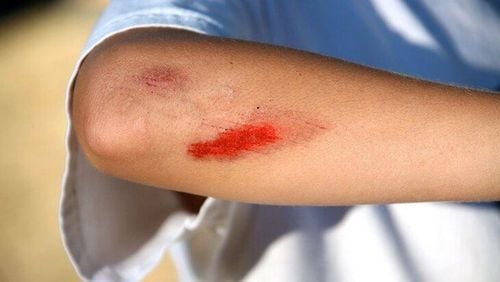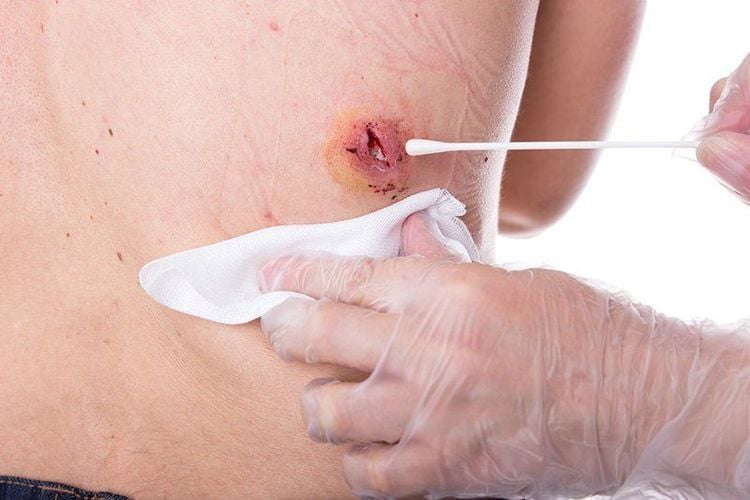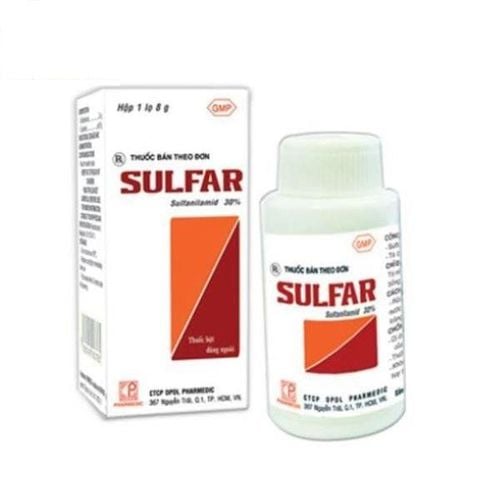This is an automatically translated article.
We all will have to go through at least once with open wounds, most open wounds can heal on their own after a while. However, in some cases, open wounds can cause serious complications if not properly cared for.
1. What is an open wound?
An open wound is an injury that involves a tear on the outside of the skin or inside the body's tissue, often involving the skin. The most common causes of open wounds are falls, accidents with sharp objects, car accidents, etc. Most open wounds are minor and can be treated at home. However, in the event of a serious accident or an open wound with heavy bleeding or prolonged bleeding, you should go to a medical facility immediately, because if not cared for properly, it can cause infection.2. Types of open wounds
There are many types of open wounds, in which open wounds can be divided into 4 types depending on the cause of the wound, including:
Open wound due to abrasion Abrasion of the skin occurs when the skin is rubbed against a rough or hard surface. The characteristic of an abrasion wound is that it usually does not bleed a lot, but the wound should be cleaned of any dirt embedded in the skin and cleaned to avoid infection.
Tear A tear is a deep cut through your skin. Usually the cause of these injuries can be sharp knives, tools and machines... In the case of a deep laceration, it will cause bleeding and spread. Sometimes at the point of the artery can cause a lot of blood loss, leading to shock.
Puncture A puncture is a large or small hole caused by a long, sharp object, such as the tip of a sharp knife, nail or needle, or bullet. The punctures may not bleed a lot, but they can be deep enough to cause damage to internal organs. If you have a small puncture caused by an object such as a nail or an unclean object, you should get a tetanus shot.
Loss of a part of the body This condition occurs when part or all of the skin and underlying tissues are gone. Common in serious accidents or traffic accidents, work or in fights. This is a serious type of open wound and can easily cause complications of an open wound.

Vết thương hở được phân làm một số loại khác nhau
3. How to treat an open wound?
Depending on the extent and types of open wounds, you can choose home remedies or intervention in medical facilities. Remedies for Open Wounds:
Home Wound Care Minor wounds heal fairly well and can be treated at home. First, wash and disinfect the wound to remove any dirt and debris left behind by the injury. In case of bleeding, apply pressure directly to the wound to control bleeding and swelling.
After disinfecting to control bleeding, it is necessary to wrap the wound and always use a sterile bandage or bandage. Some very small wounds will heal on their own without a bandage but will need to be kept clean and dry for about five days.
If the case is too painful, pain relievers such as acetaminophen can be used as directed, avoiding ingredients with aspirin because they can cause or prolong bleeding time.
If you have a lot of bruising or swelling, you can apply ice to limit bruising and swelling. Sunscreen with sun protection factor should be used on those areas until the wound is completely healed.
Open wounds requiring medical attention Not all cases can be treated at home. Which in some cases need intervention such as:
Open wound deeper than 1cm. Bleeding profusely and continuously with direct pressure Bleeding lasting more than 20 minutes Bleeding caused by a serious accident. In the above cases can be treated with suturing to stop bleeding and speed up healing, if puncture wounds need tetanus vaccination. Depending on the location of the wound and the risk of infection, the wound can be healed by several methods such as:
A sterile dressing to prevent infection from occurring. Use pain relievers, antibiotics in cases of high risk of infection. Apply cold to reduce swelling, pain and bruising. If a body part is severed, wrap it in a sterile bandage and place it in ice water. Take care of the wound by changing the bandage daily, before changing the bandage, wash your hands to avoid infection.
4. Complications of open wounds
Complications of an open wound can include:The main complication of an open wound is the risk of infection. Contact your doctor immediately if you have signs of infection in an open wound such as fever, pain, swelling, a wound that does not heal, a greenish and foul-smelling pus discharge... In this case you need to contact your doctor. The wound is cleaned and antibiotics are used to treat the infection. Some possible forms of infection include

Vết thương hở có thể xảy ra một số biến chứng như chảy mủ
Vinmec International General Hospital is a high-quality medical examination address, with a team of qualified doctors, many years of experience and a system of modern equipment and machinery. Therefore, when there are any health problems, customers can go to the hospital for examination and timely treatment.
Please dial HOTLINE for more information or register for an appointment HERE. Download MyVinmec app to make appointments faster and to manage your bookings easily.
Reference source: healthline.com












